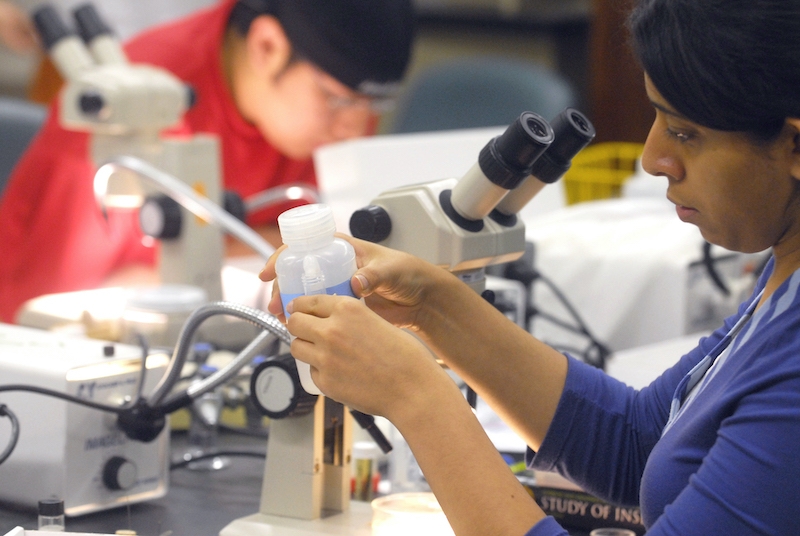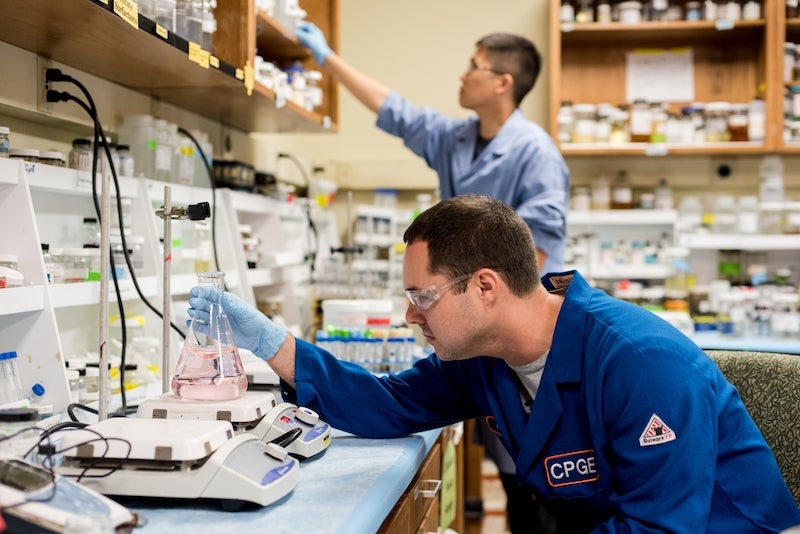Viruses
The world urgently needs effective treatment for COVID-19, but viruses are not easy targets.
- They multiply and spread rapidly.
- The severity of symptoms varies from person to person.
- They are quick to evolve.
Even established viral treatments like the flu vaccine must be continually adapted to remain effective. Research to uncover the structure and function of viruses will clear the path and set targets for new and more effective therapies like a vaccine for COVID-19.
Researchers at The University of Texas at Austin are working to meet this challenge.
Explore Research Opportunities
A study of how viral structural proteins impact host-cell response and disease progression, filling critical knowledge gaps to inform potential therapies.
Dawit Kidane-Mulat, College of Pharmacy
A study to examine if an enzyme currently in clinical trials for cancer treatment can stimulate and enhance our own innate immune response, shutting down the virus and stopping infection.
Rongze Lu, Dell Medical School
Investigations on synthetic lungs that simulate how young and elderly patients respond differently to COVID-19, pointing to more targeted and effective treatments.
Sapun Parekh, Cockrell School of Engineering
Giving to Research at UT Austin
UT Austin has a long history of groundbreaking discoveries and deep expertise in the study of viruses.

Experts pursuing the most promising research
We’re working to illuminate the immune response, to understand how and why viruses target certain cells, and to engineer viruses to deliver therapeutics.

From research to clinical practice
We are able to rapidly translate epidemiological studies from the research lab to the patient’s bedside.


A track record of success
We are national leaders in engineering, technology, biomedical engineering and collaborative medical research.